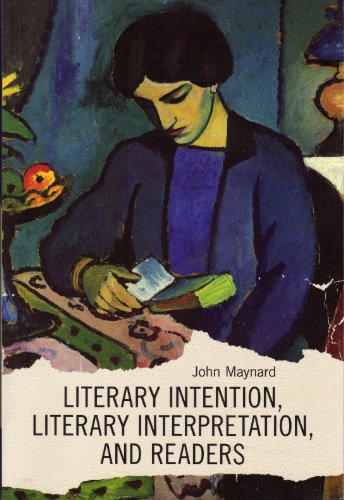

Most ebook files are in PDF format, so you can easily read them using various software such as Foxit Reader or directly on the Google Chrome browser.
Some ebook files are released by publishers in other formats such as .awz, .mobi, .epub, .fb2, etc. You may need to install specific software to read these formats on mobile/PC, such as Calibre.
Please read the tutorial at this link: https://ebookbell.com/faq
We offer FREE conversion to the popular formats you request; however, this may take some time. Therefore, right after payment, please email us, and we will try to provide the service as quickly as possible.
For some exceptional file formats or broken links (if any), please refrain from opening any disputes. Instead, email us first, and we will try to assist within a maximum of 6 hours.
EbookBell Team

4.1
60 reviewsThis accessible, personal, and provocative study returns to the major subject in literary discussion before and during the relatively recent flourishing of literary theory, that of literary intention. Does the author’s personal intention or historical site determine a correct interpretation of a literary work?
Probing the entire range of issues connected with this many-faceted and knotty concept, this book engages with interpretation on both theoretical and practical levels. It argues that the hard questions about interpretation connected to issues of intention cannot be sidestepped or ignored. It does not argue for conservative concepts of literature itself, nor against the major historical engagements of critics in our time. But in addressing those who continue to read or teach literature, it does insist on a level of sophistication in issues of literary interpretation that cannot be assured by historical research and knowledge of the social and cultural connections to literary works. The overall aim of the work is to recall readers to the great complexity, pleasure, and interest of literary interpretation.